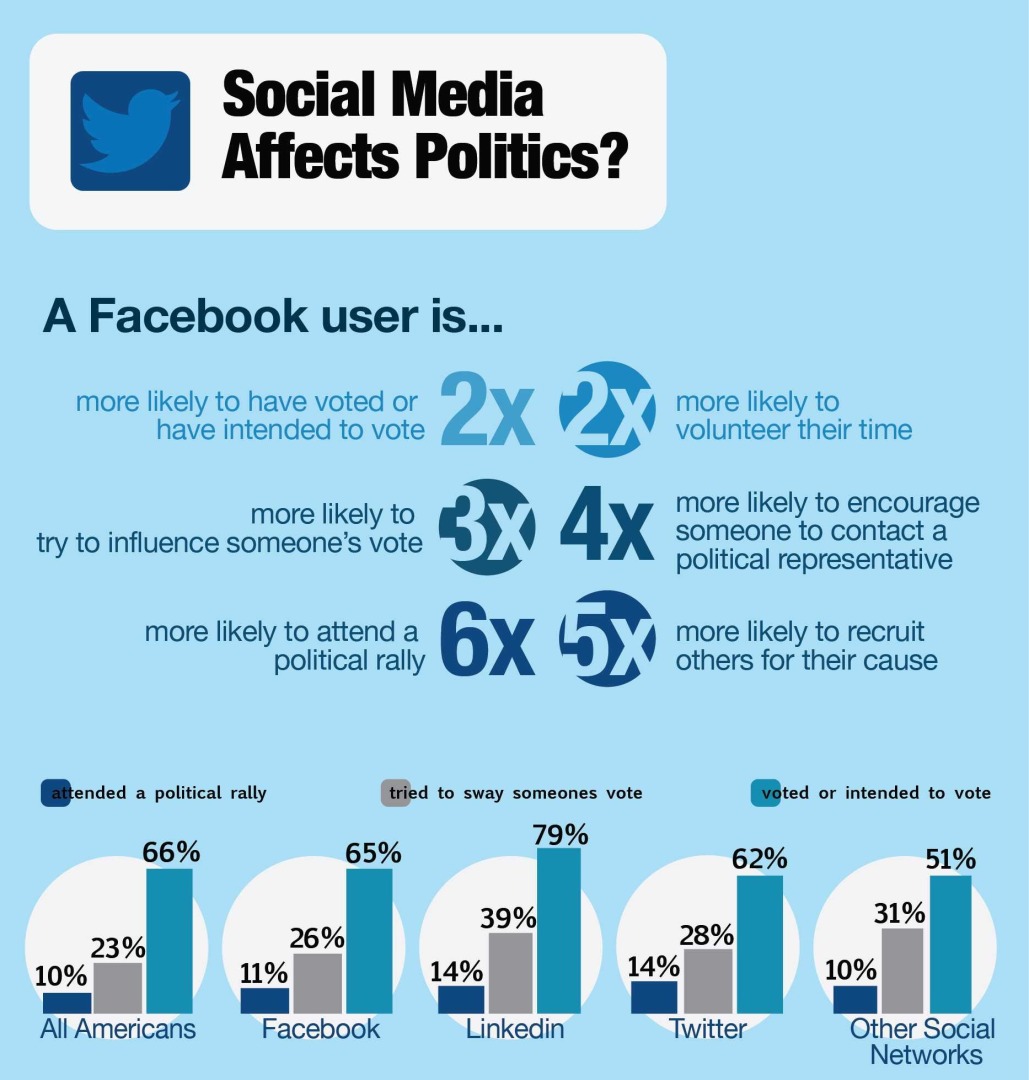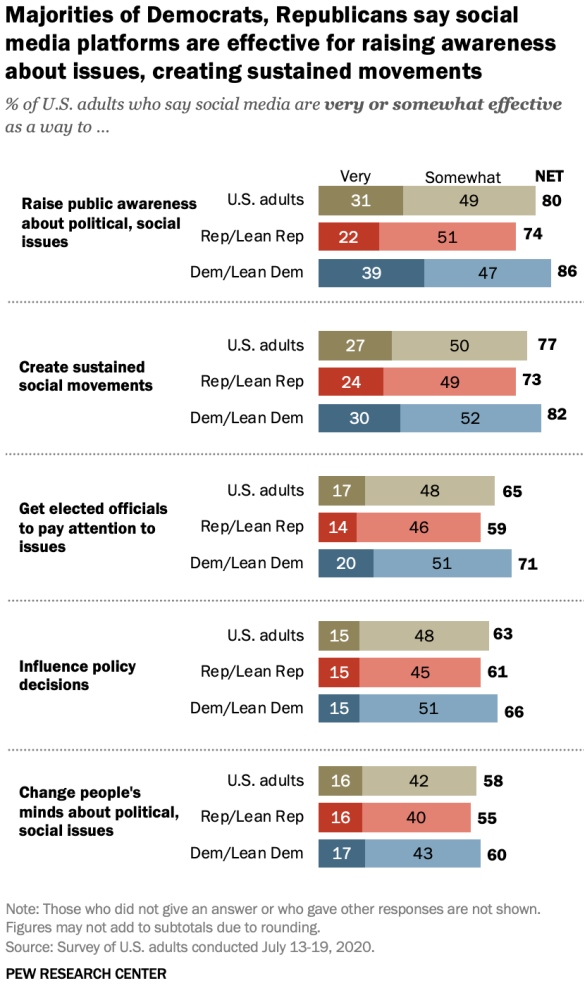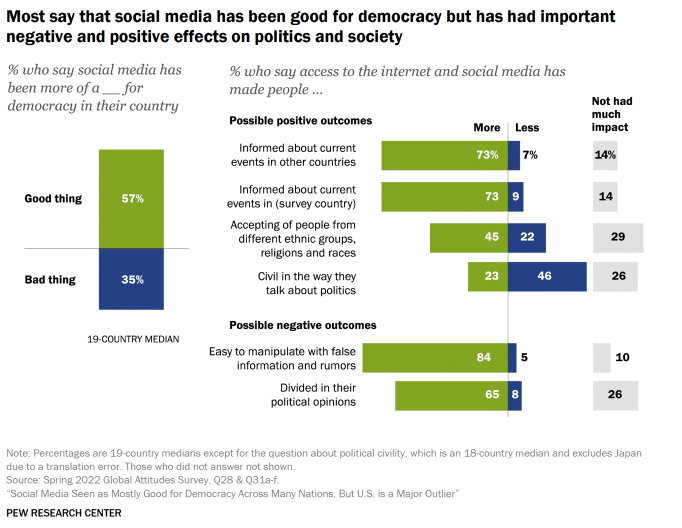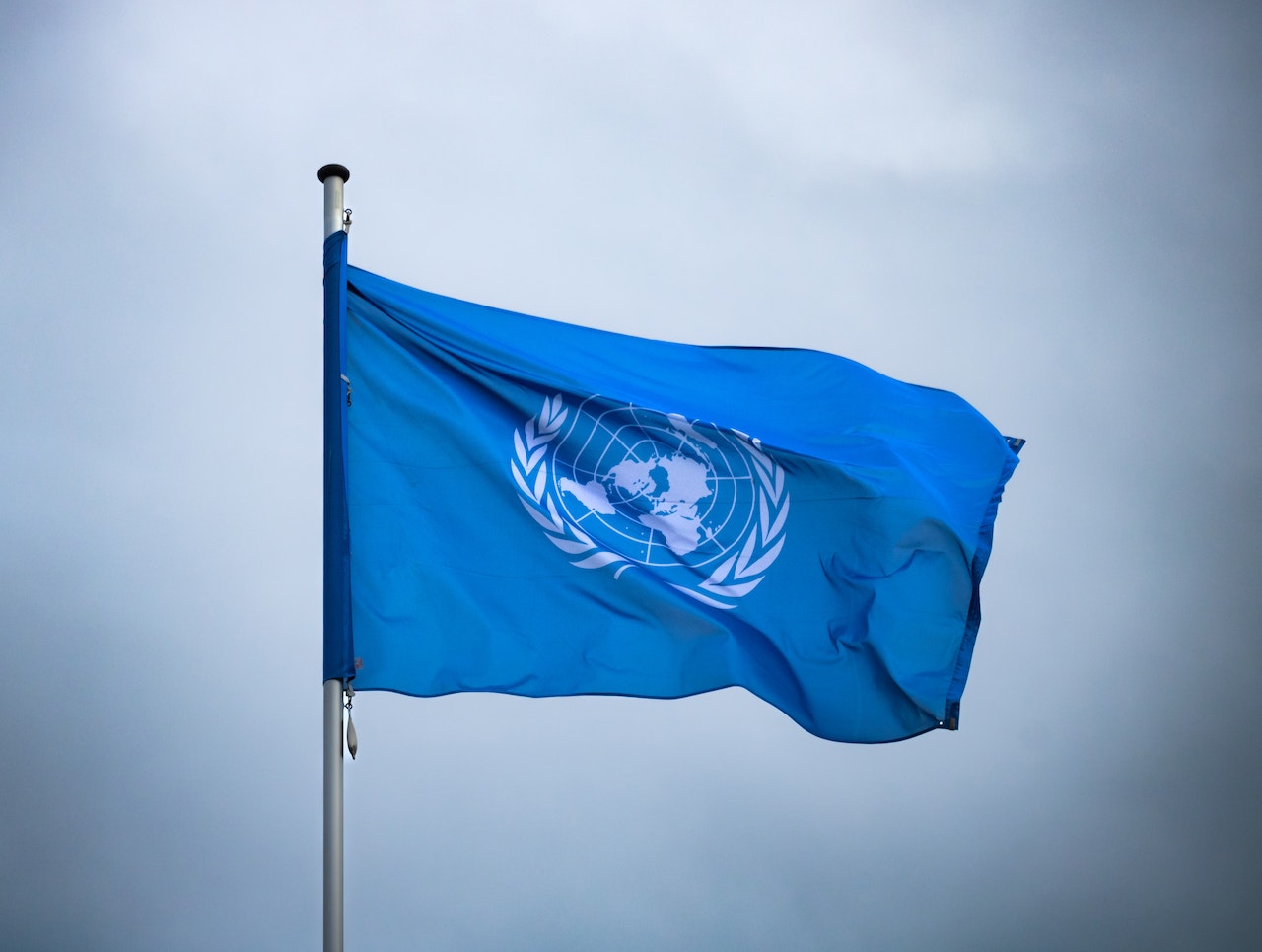
Politics in the Digital Age: Navigating the Impact of Social Media on Political Discourse
In the digital age, social media platforms have become powerful tools that shape political discourse and influence public opinion.
This article delves into the impact of social media on politics and explores the opportunities and challenges it presents in democratic societies.
1. New Platforms for Political Engagement Are Facilitating the Rise of Citizen Journalism

Social media platforms including Facebook and Twitter have transformed political communication, enabling politicians to connect directly with constituents and engage in real-time conversations. Platforms like Twitter and Facebook have become crucial avenues for political campaigns, facilitating outreach, mobilization, and fundraising efforts.
2. Polarization & Amplification of Political Echo Chambers Are Dangerous
One of the challenges posed by social media is the creation of echo chambers, where individuals are exposed only to information and viewpoints that align with their pre-existing beliefs. This polarization effect can lead to a fragmented public discourse, hindering constructive dialogue and understanding across ideological lines.
3. Disinformation and Fake News Are Major Threats to Democracy
Social media platforms have also become breeding grounds for disinformation and fake news, posing significant challenges to democratic societies. The rapid spread of false information can manipulate public opinion, undermine trust in institutions, and influence election outcomes. Efforts to combat misinformation require collaboration between platforms, fact-checkers, and users.
4. Online Activism and Grassroots Movements Are Creating a New Power Shift
The power of social media has been instrumental in mobilizing online activism and grassroots movements.

From the Arab Spring to the Black Lives Matter movement, social media platforms have provided avenues for collective action, raising awareness, and holding those in power accountable.
Online activism has become a powerful force in shaping political landscapes globally.
5. Data Privacy and Ethical Concerns Should Be Tackled by Balancing Free Speech and Regulation
The collection and utilization of personal data by social media platforms have raised concerns about privacy and ethical considerations. Balancing the protection of individuals' privacy rights while preserving free speech and political expression poses a complex challenge. Striking the right balance requires robust regulations and transparent policies.
6. The Future of Political Engagement is Online

Despite the challenges, social media holds immense potential for fostering political engagement and positive change. Political leaders, activists, and citizens can harness the power of social media to promote transparency, accountability, and civic participation. Utilizing social media responsibly can enhance democracy and bridge societal divides.
7. Social Media Must Be Regulated in the Digital Age
Social media has revolutionized political discourse, providing both opportunities and challenges for democratic societies. While it offers platforms for engagement, mobilization, and activism, the impact of social media on polarization, disinformation, and privacy cannot be overlooked. Navigating the digital age requires proactive efforts to address these challenges while leveraging the potential of social media for positive political change.
Trending
-
1 76 Theses on American Patriotism
Timothy Taylor -
2 A Comprehensive Approach to Handling Riots
Bhumesh Verma -
3 Innovative Approaches to Diplomacy: A Multi-Pronged Strategy for The Phygital Era
Dr. Ingrid Vasiliu-Feltes -
4 Business Chiefs Gather to Discuss India Trade Deal Proposals
Nitish Mathur -
5 Everything You Need to Know About Jordan Bardella
Felix Yim





Comments